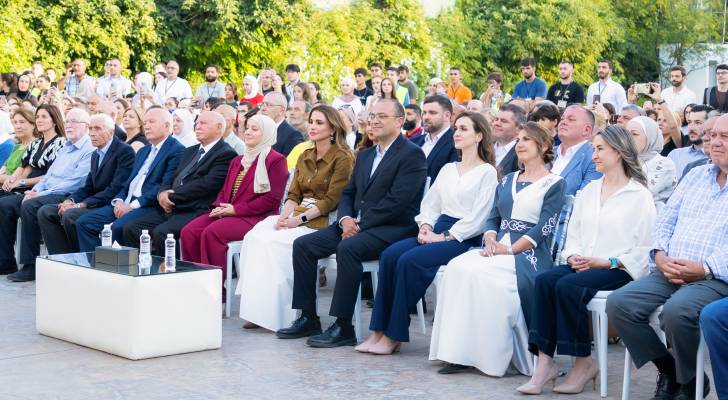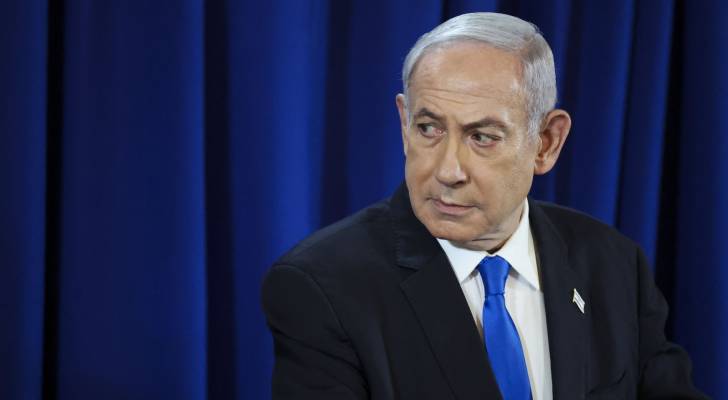Israel’s E1 settlement plan deepens fears over two-state solution as Gaza assault nears
AFP
AMMAN — Israel has approved one of its most controversial settlement schemes, ratifying plans for more than 3,400 housing units in the so-called E1 area east of occupied Jerusalem.
The Israeli scheme drew global condemnation, with UN chief Antonio Guterres saying the settlement would effectively cleave the West Bank in two and pose an "existential threat" to a contiguous Palestinian state.
Last week, Israel's far-right Finance Minister Bezalel Smotrich backed plans to build around 3,400 homes on the ultra-sensitive tract of land, which lies between Jerusalem and the Israeli settlement of Maale Adumim, AFP reported.
"I am pleased to announce that just a short while ago, the civil administration approved the planning for the construction of the E1 neighbourhood," the mayor of Maale Adumim, Guy Yifrach, said in a statement on Wednesday.
The project, first introduced in the 1990s, repeatedly stalled due to international opposition, including from the United States. Prime minister Benjamin Netanyahu revived it in 2012 and again in 2020.
According to the Applied Research Institute - Jerusalem (ARIJ), the Israeli plan calls for the construction of 3,401 housing units in the strategic corridor between the settlement of Ma’ale Adumim and Jerusalem.
ARIJ said the settlement project would effectively link the two while severing territorial continuity between Ramallah and Bethlehem. “In practice, the project appears deliberately designed to redraw the territorial map of the West Bank. It would bisect the territory, obstruct the development of a contiguous Palestinian metropolitan area linking Ramallah (north), Jerusalem (centre), and Bethlehem (south), and ultimately cement a geographic reality fundamentally incompatible with Palestinian statehood.”
International lawyer Anis Qassem said Israel’s settlement expansion represents “a major crime” under international law.
“International law does not erode, it is constant. What erodes is the credibility of states that ignore its application,” Qassem told The Jordan Times. “The Fourth Geneva Convention stresses that states must ensure compliance and hold violators accountable.”
He referred to the July 2024 advisory opinion issued by the International Court of Justice (ICJ), which recommended states exert pressure on Israel by implementing measures like divestment and diplomatic boycotts. "The International Court of Justice has explicitly stated that settlements are invalid and in violation of international law," he stated.
“The expansion in E1 is a test of the ICJ’s resolve,” Qassem added. “The ICC must act against Prime Minister Netanyahu, Defence Minister Gallant, and the political and military officials who authorise and implement these orders.”
Amer Sabaileh, a political analyst, told The Jordan Times that Israel's current trajectory must be interpreted in light of the post-October 7 security doctrine.
“Israel, without doubt, is redrawing its security borders in the aftermath of October 7. This inevitably extends into redrawing political borders.”
“Even the question of normalisation is no longer a priority for Israel under what it perceives as an existential threat. Security comes first, and Arab pressure through normalisation will have little impact at this stage.”
Omar Raddad, the strategic security expert underlined that the E1 plan is a “long-standing Israeli project designed to secure control over East Jerusalem by encircling it with settlements and cutting it off from its Palestinian surroundings.”
“The implementation of this plan aims to divide the West Bank into north and south, effectively destroying the idea of a Palestinian state, something the Israeli right considers even more dangerous than armed resistance,” Raddad said.
He stressed that Jordan rejects the project outright: “It [the decision] abolishes the two-state solution, undermines the Jordanian Custodianship over the holy sites, and carries risks of displacing Palestinians into Jordan, all of which are red lines for the Kingdom.”
“But Jordan is not alone. The Arab group, along with the US and European countries, also oppose any change to the status quo in the West Bank before a final settlement is reached.”
The Ministry of Foreign Affairs has reiterated that the new settlement plan undermines the rights of the Palestinian people to an independent, sovereign state along the pre-1967 borders, with East Jerusalem as its capital, and emphasised that Israel has no sovereignty over occupied Palestinian territories.
In a statement last week, the ministry voiced the Kingdom’s "categorical rejection" of the settlement plan and all other unilateral Israeli measures, saying that the move constitutes a "blatant breach" of international law and United Nations Security Council resolutions, particularly Resolution 2334, which deems Israeli settlement activity in occupied territory illegal.




